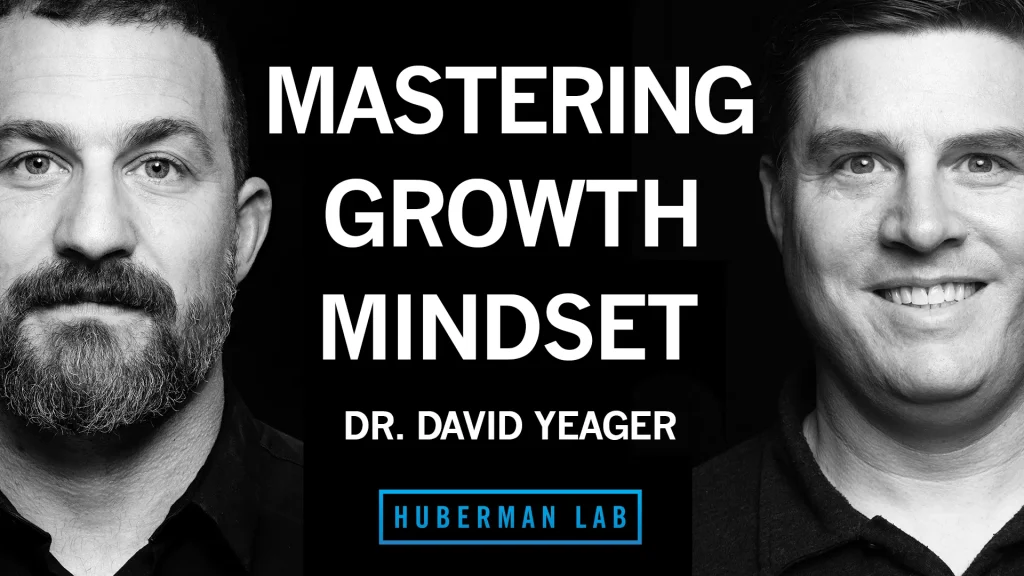Master Criticism Growth Mindset Techniques to Handle Critiques

Understanding Criticism Through a Growth Mindset
Criticism can often feel like a personal attack, leaving many of us feeling vulnerable and defensive. However, by adopting a growth mindset, this dynamic can change dramatically. A growth mindset, a term coined by psychologist Carol Dweck, is rooted in the belief that abilities and intelligence can be developed over time. It encourages us to embrace criticism as a powerful tool for personal development rather than a threat.
The Role of Shower Meditation
In the tranquil sanctuary of Shower Meditation, where mindfulness and self-reflection intersect, mastering the art of managing criticism becomes even more significant. This practice allows for a deeper introspection, unearthing the layers of our defensive reactions to criticism. By integrating mindfulness techniques, we not only become more resilient in the face of criticism but also enhance our emotional well-being, thus enabling us to navigate challenges with greater efficacy.
Top 5 Techniques for Harnessing a Growth Mindset
Prepare to discover the Top 5 techniques for dealing with criticism effectively. These methods are crafted to harness the power of a growth mindset, offering you practical tools and actionable insights that can be seamlessly incorporated into your daily life, especially during moments of meditation and self-reflection.
- Pause and Reflect: Before reacting to criticism, take a moment to pause and reflect. This helps in responding thoughtfully instead of impulsively.
- Focus on Growth: View criticisms as opportunities for growth, identifying specific areas to enhance rather than focusing solely on the negative feedback.
- Seek Specifics: Ask for examples or suggestions on how you can improve, which can make the criticism more constructive and less personal.
- Practice Gratitude: Appreciate the fact that others are willing to help you grow by offering their perspectives, even if it stings at first.
- Reflect in Solitude: Use moments of meditation or quiet reflection to process the feedback, allowing for deeper understanding and integration into your personal development journey.
By embracing these techniques, you are invited to view criticism not as an obstacle but a stepping stone toward a more mindful and resilient self. Explore these strategies further to transform your approach to feedback, fostering a culture of continuous personal growth.
SEE ALSO: Click here to read another article

Top 5 Ways to Handle Criticism Using a Growth Mindset
In today’s fast-paced, high-stakes world, criticism is an ever-present part of our professional and personal landscapes. For many, it’s something to dread, but with a growth mindset, criticism becomes an avenue to enhance abilities and achieve success. A growth mindset, as popularized by psychologist Carol Dweck, revolves around the belief that abilities and intelligence can be developed through dedication and hard work. In this article, we delve into five actionable strategies to use a growth mindset to turn criticism into a stepping stone, ranked from least to most impactful.
5. Accept that Criticism is a Part of Growth
The first step in effectively managing criticism is to acknowledge that receiving feedback is an integral aspect of personal and professional development. Often, the fear of criticism stems from a fixed mindset, where people believe their abilities are static. However, when viewed through the lens of a growth mindset, each critique provides a valuable learning point.
To put it concretely, feedback can often reveal blind spots, areas of your work or behavior you might not even realize need improvement. For instance, a writer might receive feedback about a lack of clarity in their prose, prompting them to refine their writing style. Moreover, consistently engaging with feedback can incrementally refine and perfect skills in various domains, whether it’s through crafting better strategies in business projects or enhancing interpersonal communication.
Appreciating criticism as a quintessential part of the growth journey, akin to how athletes view their coaches’ feedback, primes individuals to be more receptive, ultimately equipping them with an attitude geared towards continuous improvement.
4. Detach Your Identity from Your Work
Often, individuals tie their personal self-worth to their professional outputs, which heightens sensitivity to criticism. A pivotal mindset shift involves realizing that you are not just your work. By appreciating that your existing skills are just a snapshot of your ongoing journey, you open up to a more balanced reception of critique.
Professional setbacks or perceived failures are not indicative of your future capabilities. For example, a chef who receives critical reviews for a particular dish can learn to improve their culinary techniques without feeling their overall talent is questioned. Emphasizing improvement over perfection encourages resilience, making it clear that each piece of feedback is a tool toward self-betterment rather than an attack on character.
This ideology empowers individuals to transform critiques into opportunities for growth, building not only better work outcomes but also personal resilience.
3. Seek Specific Feedback
Sometimes, feedback can come across as frustratingly vague, leaving you uncertain about the path forward. It’s crucial, therefore, to take the initiative to ask for detailed, specific feedback. This strategy encourages clear communication and drives efforts towards precise areas of improvement.
If, for instance, a manager says your presentation lacked impact, ask for concrete examples of moments where it fell short and seek suggestions for improvement. Is it your data analysis, presentation style, or perhaps the clarity of your visuals that need enhancement? By asking questions like “What specific aspect could be improved?” or “Could you demonstrate a more effective approach?” you develop a clearer understanding of expectations.
This practice not only ensures more actionable insights but also demonstrates a proactive approach to growth, signaling to others your commitment to self-improvement and excellence.
2. Reflect and Internalize Feedback
Once feedback is received, it’s essential to pause, reflect, and internalize the critique, essentially turning each piece of criticism into a lesson. By not immediately reacting—especially emotionally—you give yourself the opportunity to thoughtfully consider how this feedback can contribute to your growth.
A practical approach includes writing down the feedback, examining it carefully, and identifying recurring patterns over time. Keeping a detailed journal of past feedback and your responses can help highlight persistent areas in need of improvement and track your progress over time.
For instance, a teacher receiving feedback about student engagement might reflect and realize a pattern in the presentation of material, leading to innovations in teaching methods. By reflecting deeply rather than reacting defensively, feedback becomes a transformative force in your professional toolkit.
1. Embrace a Continuous Learning Mindset
At the pinnacle of our list is the most potent strategy: fully embracing a continuous learning mindset. This entails cultivating an unyielding belief in your capacity to grow and evolve through sustained effort and dedication.
Viewing every piece of feedback as an opportunity to expand your understanding transforms the nature of criticism. Consider the case of tech innovators who repeatedly refine their products based on user feedback, constantly learning from market responses to achieve groundbreaking solutions. By setting specific learning objectives aligned with the feedback you receive and surrounding yourself with mentors and peers who share a growth-oriented perspective, you amplify this effect tenfold.
Ultimately, embracing continuous learning creates a dynamic life philosophy where criticism is no longer a setback but a crucial component of the journey toward reaching new heights of personal and professional achievement.
In conclusion, criticism, when channeled through the principles of a growth mindset, becomes a transformative catalyst for self-improvement. Embracing feedback’s inevitability, detaching personal identity from professional output, seeking detailed insights, reflecting on feedback, and fostering a continuous learning mindset are strategies that redefine criticism as a powerful ally in your quest for success. As you incorporate these approaches, watch your capacity for growth and resilience flourish across all realms of life!
| Category | Description |
|---|---|
| Embracing Feedback | Leveraging critiques as a mechanism for personal development fosters resilience and adaptability. Instead of viewing criticism as a personal attack, adopting a growth mentality enables individuals to extract valuable lessons for continuous improvement. |
| Transformational Learning | Utilizing criticism as a learning opportunity leads to transformational experiences. This reeducation allows individuals to develop new skills, perspectives, and strategies, thus enriching their personal and professional lives. |
| Improved Self-Awareness | Receiving feedback forces an examination of one’s strengths and weaknesses. This enhancement of self-awareness allows for targeted development and a clearer path to achieving goals. |
| Relationship Building | Responding constructively to criticism can strengthen interpersonal relationships. Engaging with feedback openly fosters trust and understanding between colleagues or friends and demonstrates emotional intelligence. |
The ability to navigate criticism effectively is an invaluable asset in personal and professional contexts. Each of these categories sheds light on distinct advantages of adopting a growth mindset when faced with critiques. Embracing feedback not only enables constructive dialogue but also contributes to an enriching learning journey that prepares individuals for future challenges. Through this lens, criticism transforms into a catalyst for development rather than a source of discouragement. This remarkable shift in perspective can lead to significant personal advancement and stronger relational dynamics.
LEARN MORE: This related article may interest you
Frequently Asked Questions on Handling Criticism with a Growth Mindset
What is a growth mindset and how does it help in handling criticism?
The concept of a growth mindset was developed by psychologist Carol Dweck. It is the belief that talents and abilities can be developed through dedication and hard work. This mindset helps individuals see criticism as an opportunity to learn and improve, rather than as a personal attack. By adopting a growth mindset, you can transform criticism into a powerful tool for development and success.
How can one differentiate between constructive and destructive criticism?
Constructive criticism is intended to help you improve and is often specific, supportive, and actionable. It focuses on how you can enhance your skills or rectify a mistake. Destructive criticism, on the other hand, is vague, negative, and often personal, with no intention of fostering improvement. Recognizing the type of criticism can significantly aid in deciding how to respond and what to take away from the feedback.
What strategies can be employed to respond to criticism positively?
A few effective strategies include actively listening to the critic, asking clarifying questions to understand the feedback better, and expressing gratitude for the advice. Additionally, reflecting on the criticism and devising a plan to address any valid points can help turn potentially discouraging feedback into a constructive experience. Developing emotional resilience can also be key, allowing you to process criticism without letting it undermine your confidence.
Is it possible to give yourself feedback based on a growth mindset?
Absolutely. Self-assessment is a crucial component of a growth mindset. Regularly reviewing your work, acknowledging areas for improvement, and setting incremental goals for personal development can strengthen your skills. By maintaining a curious and open attitude towards learning, you can critique your actions constructively and drive continuous improvement.
Can a growth mindset be applied to professional environments, and how?
In professional settings, a growth mindset fosters a culture of continuous learning and development. By encouraging open communication and promoting flexible thinking, teams can use feedback to innovate and improve processes. Leaders play a pivotal role by modeling this mindset, reinforcing the belief that skills can be developed, and providing resources for employee growth. This approach can lead to increased motivation, enhanced problem-solving abilities, and more robust teamwork.
CHECK OUT: Click here to explore more
Conclusion: Embracing a Growth Mindset to Handle Criticism
In the journey of personal and professional growth, criticism is an inevitable companion. Adopting a growth mindset to handle criticism offers a transformative approach that not only enhances resilience but also maximizes potential for self-improvement. This mindset allows individuals to perceive criticisms as opportunities rather than obstacles.
By reframing criticism into constructive feedback, individuals can use the insights gained to foster personal development and make informed improvements. Recognizing that failures are merely stepping stones towards success helps in navigating challenges with confidence and determination. A growth mindset encourages learning from every critique, promoting a dynamic cycle of self-betterment.
Furthermore, practicing self-reflection deepens this process. Deliberately evaluating one’s responses to criticism enables a clear understanding of one’s emotional triggers and sets the stage for more adaptive reactions. This introspection, paired with an earnest willingness to embrace change, greatly enhances interpersonal skills and strengthens relationships.
Incorporating elements of Shower Meditation, such as mindfulness and intentional reflection, can significantly bolster this mindset. The calm and tranquil environment of a shower provides an ideal setting for individuals to internalize criticism thoughtfully, dispelling negative emotions and focusing on growth-oriented solutions.
In summary, handling criticism with a growth mindset not only propels individual progress but also cultivates a positive outlook on life’s challenges. As we continue to embrace this mentality, we are better equipped to turn critiques into powerful catalysts for ongoing personal development and enhanced productivity, fostering a more fulfilling and resilient life journey.


